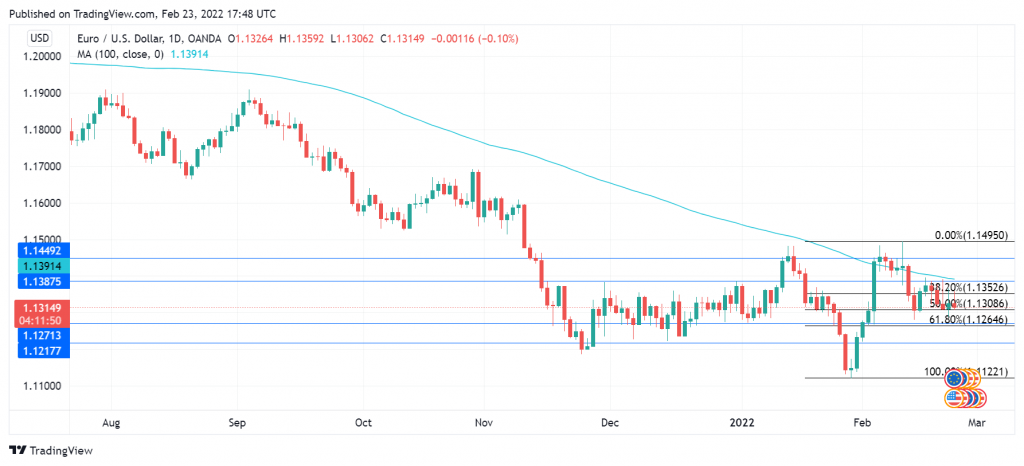Post by: PocketOption on Feb 24, 2022, 04:46 am
The standoff in e continues to escalate, but the financial markets remain calm for now. The US and other western nations have slapped further sanctions on after Moscow sent troops to two breakaway regions in eastern e. Despite this, investor risk appetite recovered on Tuesday, and the euro, which is extremely sensitive to the conflict in its backyard, is trading sideways.
The US has canceled a meeting between the US Secretary of State and the n Foreign Minister, and a Biden-Putin summit will not take place, given the volatile situation in e. Nonetheless, there is a sliver of hope that the diplomatic door has not been shut completely, although the prevailing mood is still that will invade and perhaps conquer the capital Kyiv.
German Consumer confidence slides
German GfK consumer sentiment expects confidence to weaken in March, with a reading of -8.1, down from -6.7 in February. This was lower than the consensus of -6.3 and marked a third straight month of negative readings, as consumers continue to feel pessimistic about economic conditions. The survey was conducted in mid-February, and the Omicron wave and high inflation were the primary factors which impacted on the mood of consumers.
The Federal Reserve is widely expected to raise rates at its March meeting. The most likely scenario is a traditional hike of 25 basis points, but just a week ago there was a reasonable likelihood of a 50-basis point move. However, the e crisis and the surge in oil prices could trigger stagflation, which could prod central bankers to hold off on any rate increases. Even if the Fed pushes ahead with a rate hike in March, the e standoff could well slow down the Fed’s plans to raise rates, especially if there is a n invasion and oil prices rise to USD 120 a barrel or higher.
.
EUR/USD Technical
- EUR/USD faces resistance at the 100-MA at 1.1391. Above, there is resistance at 1.1449
- There is support at the 61.8 fibo at 1.1264, followed by 1.1217
Source: Euro yawns after soft German confidence data (https://www.marketpulse.com/20220223/euro-yawns-soft-german-confidence-data/)
